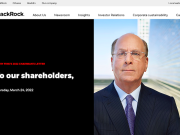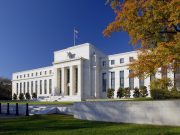Would You Give the Same Advice to Yourself if You Might Lose Your Job in the Next 6 Months
Almost all financial advisory standards discuss about budgeting, cashflow planning, investments, managing risks through insurance.
But most clients don’t buy any of this. Some put their money in savings account, some swear by real estates or stocks, some spend it all, some buy insurance policies only, and some does a combination of all (diversification).
The decisions are all very different – shaped by personalities, past experiences, education, financial literacy, up-bringing, values, culture, geography, economic environment, circle of influence, employment and income.
What if you might be losing your job in the next 6 months, would you still give the same financial advice to yourself?
No. 1 Different Jobs, Different Perspectives
As a financial advisor or wealth manager, your job risk is very different from a traditional job. Your job security and income increases as you have more clients and businesses, leading to more predictable cashflow and extra savings or income that you can control.
If you are always in danger of losing your job (in 6 months), which is the typical nature of most jobs, your job security is much lower and income may stop suddenly.
Would you apply the same financial advice to yourself if you need to worry that your financial advisory firm may fold anytime?
No. 2 Clients Constantly Worry About Uncertainties, Commitments

While financial advice is extremely helpful to most people, clients constantly worry about uncertainties and commitments.
If you represent an unfortunately mis-managed financial advisory firm or product, you will constantly worry about the day when things go wrong … … how would you explain to your clients?
If you are the client, would you worry if your financial advisor or the firm is providing the optimal advice? Would the product fail? Would you prefer to have a lot more cash on hand to allow for any sudden commitments or uncertainties?
No. 3 Emergency Funds. Does it Work?
Almost every financial plan practices at least 3 – 6 months of emergency funds. How often do you actually tap onto emergency funds over the the last 3, 10, 20 years? Is it sufficient, or is it a lot more than necessary? Or do you bridge the cashflow using credit cards (30 days grace) to pay for bills?
But what if you are going to lose your job? Would you quickly liquidate your risky assets, in case a meltdown cause a further 30 – 50% decline in portfolio value? And Should you also reduce your insurance premiums / coverage?
If you are the client, would earning 1% more yearly sufficiently compensate for the emotional worries?
How about you? If you are the advisor and you might lose your job in the next 6 months, would you accept the financial advice that your advisor give to you?
- What Happens if You Make Mistakes, Say The Wrong Things to Clients?
- 5 Reasons Why Financial Planning is More Important than Ever for Clients
- 7 Factors to Consider Before Wealth Management Advisory Becomes Beneficial to Clients
- 8 Reasons why Clients prefer to place Money in Deposits than Investments
- How do you Manage Clients during Financial Crisis & Market Downturn?
Sign Up / Register
Caproasia Users
- Manage $20 million to $3 billion of assets
- Invest $3 million to $300 million
- Advise institutions, billionaires, UHNWs & HNWs
Caproasia Platforms | 11,000 Investors & Advisors
- Caproasia.com
- Caproasia Access
- Caproasia Events
- The Financial Centre | Find Services
- Membership
- Family Office Circle
- Professional Investor Circle
- Investor Relations Network
Monthly Roundtable & Networking
Family Office Programs
The 2025 Investment Day
- March - Hong Kong
- March - Singapore
- July - Hong Kong
- July - Singapore
- Sept- Hong Kong
- Sept - Singapore
- Oct- Hong Kong
- Nov - Singapore
- Visit: The Investment Day | Register: Click here
Caproasia Summits
- The Institutional Investor Summit
- The Investment / Alternatives Summit
- The Private Wealth Summit
- The Family Office Summit
- The CEO & Entrepreneur Summit
- The Capital Markets Summit
- The ESG / Sustainable Investment Summit



































